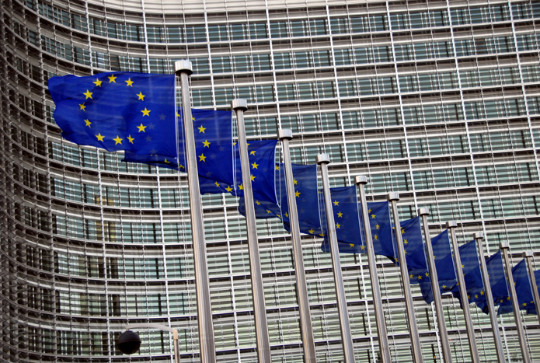 The European Commission in Brussels
The European Commission in Brussels
Europe’s Economic Leverage Over China
Washington, D.C. recently hosted the 2024 NATO Summit in celebration of the alliance’s 75th anniversary. Heads of state and important political figures gathered in America’s capital to discuss the current security issues facing the alliance. Russia’s war of aggression in Ukraine is by far its greatest threat in many years. Much of the summit focused on the war, its future, and continued support of Ukraine. Aside from Russia, NATO continues to give increasing attention to another country: China. In the summit declaration made on July 10, 2024, NATO leaders declared the People’s Republic of China to be ‘a decisive enabler of Russia’s war against Ukraine’ and a significant threat to the ‘rules based international order.’ Now that NATO has made more official its dissatisfaction for China’s actions, one may ask what is next? What leverage can it use against China to its advantage? This article will explore the potential economic leverage Europe, as a major body of NATO, could hold over China.
Like the United States, Europe’s economies are inseparably intertwined with China’s. In 2023, for example, the European Union (EU) imported more from China than any other country, accounting for 20.5% of all imports, and exported over €200 billion worth of goods to China. These numbers made the EU China’s 2nd largest trading partner in 2023 after ASEAN countries. Europe also relies almost solely on China for critical raw materials. This includes obtaining 98% of its rare earth supply, 93% of magnesium, and 97% of lithium from China. Much of the green energy technology and goods Europe needs to transition to clean energy, such as lithium for batteries or solar panels, are currently purchased from China.
While this level of reliance on and connection with China’s economy is often portrayed as a one-sided weakness for Europe, that characterization downplays the economic ‘interdependence’ both economies have on each other. As Dan Baer, Director of the Europe Program and Carnegie Endowment for International Peace, laid out, “the economic relationship is an area where Europe actually has unique leverage, perhaps even more leverage than the United States, because it is a larger market for China than the United States. […] China also needs that relationship.” As the United States continues to divest and ‘decouple’ from China, Europe’s leverage over the country will only grow. China will continue to need foreign technologies and markets to supports its huge economy, and without the United States, Europe’s share of influence grows. Simply acknowledging and vocalizing this aspect of its relationship with China will help Europeans frame its trade relationship and negotiations differently.
Analysts who follow the European-China relationship note that recent decisions and trends demonstrate some changes throughout the Europe in favor of leveraging its economic power. The EU is looking into some of China’s trade practices, including subsidizing goods, and is actively making policies that will help decrease some of its reliance on Chinese materials. One example of such a policy is the EU Critical Raw Materials Act, which seeks to increase Europe’s production of raw materials and ensure that the EU acquires no more than 65% of designated materials from any one country. While the act does not specifically call out the continent’s reliance on Chinese materials, it is made to address those specific challenges.
If the US-China relationship continues to deteriorate and Europe is able to maintain an economic edge, it has the potential to force changes to China’s actions through economic leverage. This kind of strength can only be achieved through unity on the continent. Europe’s size makes its influence large on the economic stage. But its reality as individual countries with differing governments and priorities can make unity difficult, including economic unity. The current debate on Chinese subsidized goods can provide an interesting example.
The Chinese Communist Party has adopted the practice of subsidizing Chinese made goods so that they sell for less than competing products on the international market. This practice led the United States to enact tariffs on Chinese made electric vehicles. The EU is currently considering a similar move with divided opinion among the member states. Germany, for example, worries that any move on Europe’s part will lead to responding tariffs on German goods, like cars. Its government has refrained from language aimed at criticizing China’s economic practices. France, on the other hand, favors a harder approach toward China while not completely alienating them as trade partners.
Unless Europe can come together with a unified trade policy toward China, its moment of economic leverage will slip away unused. Unity is an essential component of any policies that hope to manage a rising China.





